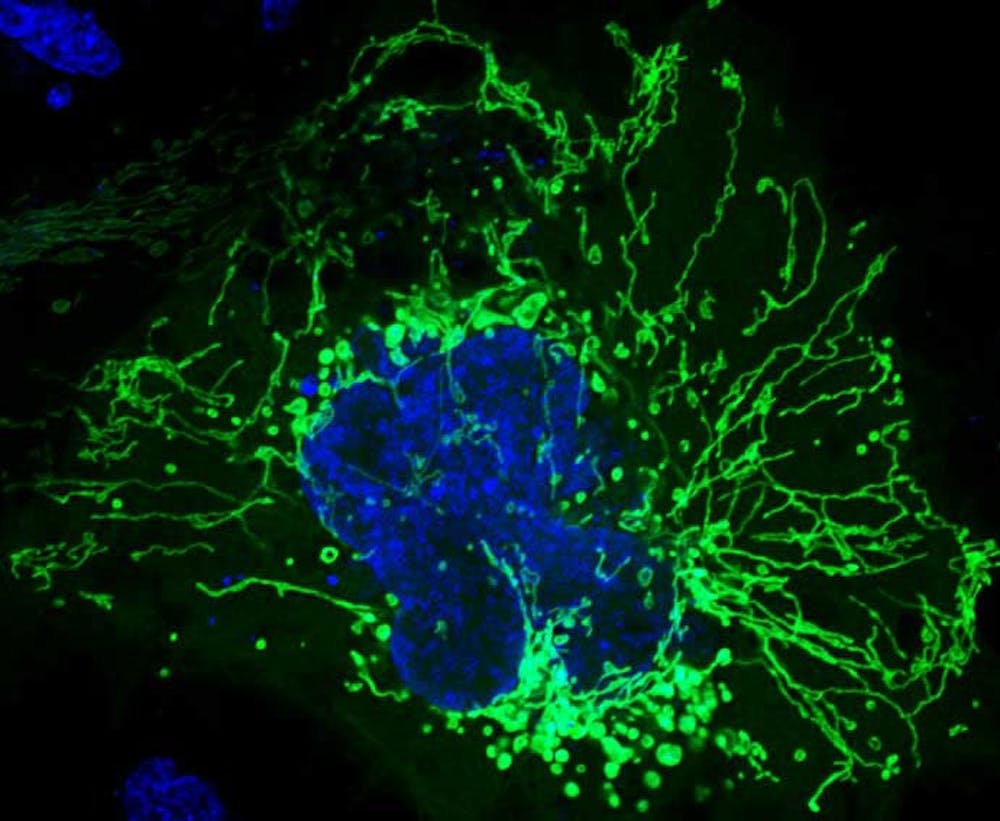The University School of Medicine’s Kashatus Lab discovered new targets for cancer medicine that could aid in the prevention of tumor growth.
The lab — in the Department of Microbiology, Immunology and Cancer Biology — has been working on research involving mitochondria and cancer. Because many cancers involve the deformation of mitochondria, blocking that process could also aid in preventing tumor growth.
According to the Kashatus Lab website, the lab specializes “in the regulation of mitochondrial dynamics and how alterations in mitochondrial fission and fusion affect basic cellular physiology.”
“The journey to this discovery has been long, but it has also been exciting,” Dr. David Kashatus said. “The initial observations that led to this discovery were actually made while I was still a postdoctoral fellow at Duke University. I started my lab here at U.Va. in late 2012 and we have been working on this story ever since.”
Mutations in a protein called Ras lead to changes in the shape of the mitochondria. These changes in shape are very important and might lead to a new treatment for cancer, Kashatus said.
The Ras genes normally regulate cell growth. A point mutation can convert Ras into an oncogene — a gene with the potential to cause cancer. Overexpression of the Ras gene can lead to uncontrollable cell proliferation, which can ultimately lead to cancer.
According to Kashatus, the lab was interested in studying tumors that resulted from the mutation in Ras. They discovered that it was mutated in about 90 percent of pancreatic cancers and that the mitochondrial shape changed significantly in these examples. Therefore, stopping the ability of cancer cells to change mitochondrial growth could possibly also affect tumor growth.
A rapidly proliferating disease and a leading cause of cancer death, signs and symptoms of pancreatic cancer are not usually obvious and don’t become apparent until complete surgical removal is close to impossible. Treatment methods are vital to combat pancreatic cancer’s deadliness.
“We are working closely with clinicians at U.Va. to perform these studies and to further validate this approach as a potential treatment,” Kashatus said. “For example, we are testing the efficacy of inhibiting mitochondrial fission in combination with the current standard of care for pancreatic cancer. If successful, we can partner with chemists at U.Va. or in the pharmaceutical industry to further develop these drugs or to identify second generation drugs that can then be used in clinical trials for patients with pancreatic cancer.”
Although pancreatic cancer was a focus in this lab, the results could be advantageous for other cancers as well due to their involvement with Ras.
“While we have primarily focused on pancreatic cancer, our research indicates that mitochondrial fission is induced by activation of the MAPK pathway, which is active in several other types of cancer, including lung cancer, melanoma and others,” Kashatus said.







